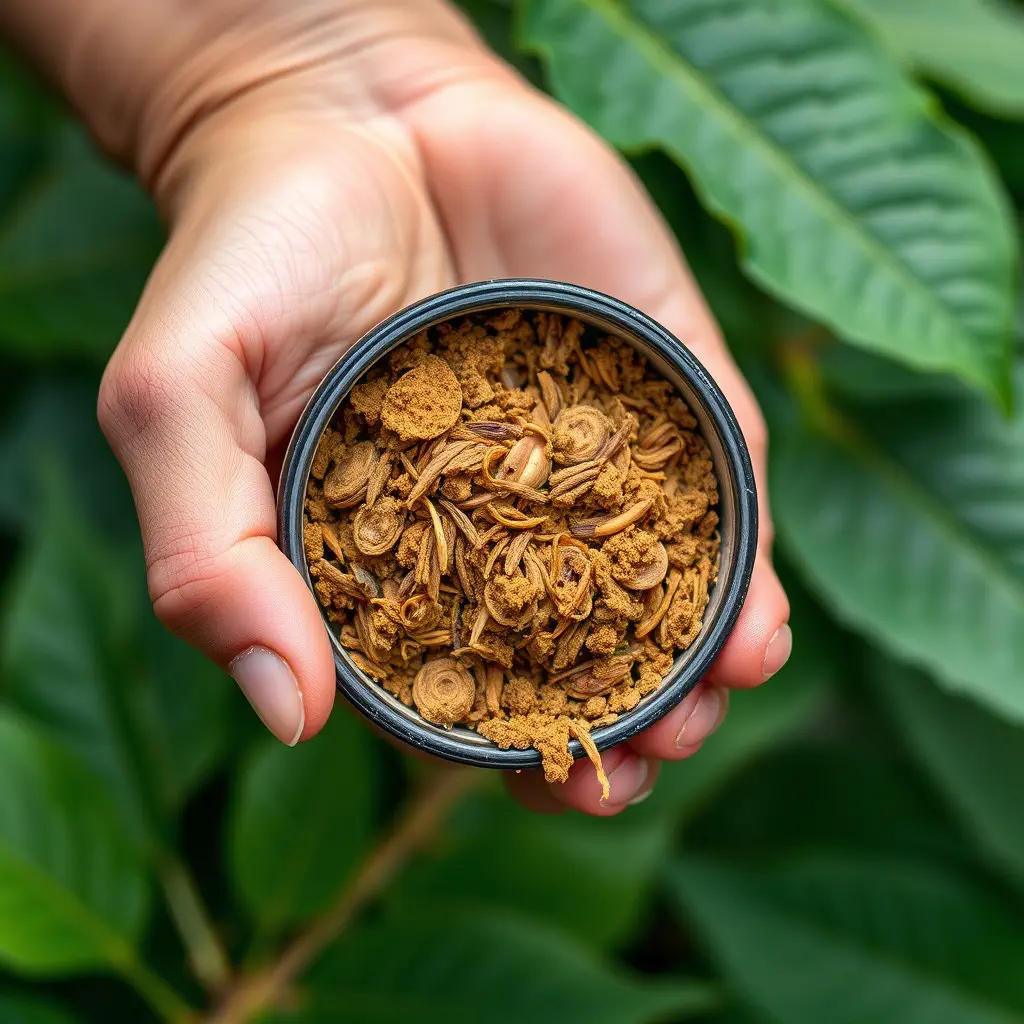Muscle soreness, commonly known as DOMS, is a common issue for those engaging in physical activities, often intensifying with new exercises or heavy workouts. This soreness, ranging from mild to severe, typically occurs 24-48 hours post-exercise due to the body's inflammatory response. Recovery strategies are crucial for managing this soreness and supporting continued performance. Kratom, derived from the Mitragyna speciosa tree, has gained attention as a natural supplement that may aid in muscle soreness management and promote restful sleep, an essential component of recovery, particularly for athletes and those with physically demanding jobs. Its compounds, mitragynine and 7-hydroxymitragynine, engage with opioid receptors to provide pain relief and sedative effects conducive to recuperation. Kratom for restful sleep is highlighted as a benefit, with some users finding it helps manage acute or chronic pain and improves sleep quality. However, it's important to approach its use responsibly, adhering to recommended dosages, considering individual sensitivity, and consulting healthcare professionals, especially when taking other medications or addressing underlying health issues. Safe kratom usage also involves maintaining proper sleep hygiene for the best results.
Muscle soreness can be a persistent challenge for individuals engaged in regular physical activity, impacting both their recovery and overall well-being. This article delves into effective relief strategies that incorporate kratom supplements, particularly highlighting its potential benefits for restful sleep. We will explore the mechanisms behind muscle soreness, how kratom may alleviate this discomfort, and the safe usage considerations to ensure a beneficial and harmonic integration of kratom in your wellness routine. Discover how kratom can be a valuable addition to your recovery process, promoting not just pain relief but also restorative sleep for optimal muscle recovery.
- Understanding Muscle Soreness and Its Impact on Recovery
- Kratom's Role in Alleviating Muscle Soreness and Promoting Restful Sleep
- Safe Usage and Considerations When Incorporating Kratom for Muscle Soreness Relief and Improved Sleep Quality
Understanding Muscle Soreness and Its Impact on Recovery

Muscle soreness, often referred to as delayed onset muscle soreness (DOMS), is a common experience among individuals engaging in physical activity, particularly when introducing new exercises or after intense workouts. This condition can range from mild discomfort to severe pain and typically presents within 24 to 48 hours post-exercise. Understanding the mechanisms behind muscle soreness is crucial for effective recovery strategies. The inflammatory response that follows muscular exertion triggers the sensation of pain as a protective measure, signaling damaged tissue to repair itself. During this period, adequate recovery becomes paramount to prevent prolonged muscle tenderness and to ensure optimal performance in subsequent activities.
In the quest for recovery, natural supplements like kratom have gained attention for their potential role in alleviating muscle soreness and promoting restful sleep, a critical component of the healing process. Kratom contains various alkaloids, chief among them mitragynine and 7-hydroxymitragynine, which are thought to interact with opioid receptors in the brain, leading to pain relief and sedative effects. When incorporated into a post-workout routine, kratom for restful sleep can not only help manage soreness but also facilitate a more recuperative and uninterrupted night’s sleep, which is essential for muscle repair and overall recovery. This dual benefit of kratom can be particularly advantageous for athletes and individuals with physically demanding jobs looking to mitigate the effects of muscle fatigue and ensure a faster return to peak performance levels.
Kratom's Role in Alleviating Muscle Soreness and Promoting Restful Sleep

Kratom, derived from the leaves of the Mitragyna speciosa tree, has garnered attention for its potential effects on muscle soreness and sleep quality. When it comes to alleviating muscle pain, certain strains of kratom are believed to interact with the body’s opioid receptors, which may help manage discomfort associated with intense physical activity or chronic pain conditions. The alkaloids present in kratom, such as mitragynine and 7-hydroxymitragynine, are thought to play a role in this process, offering a natural alternative for those seeking relief from sore muscles.
For individuals experiencing muscle soreness due to strenuous exercise or injury, the analgesic properties of kratom can be particularly beneficial. However, it’s important to note that while kratom may provide temporary pain relief, it should not replace professional medical advice or treatment. Additionally, kratom for restful sleep is another area where it has been observed to have a positive impact. The sedative effects of certain kratom strains can promote relaxation and help induce a more restful state conducive to sleep. This is particularly advantageous for those who suffer from sleep disturbances or insomnia, as adequate sleep is crucial for muscle recovery and overall health. By facilitating both pain relief and improved sleep quality, kratom can play a supportive role in recovery and well-being for individuals engaged in physically demanding activities. As with any supplement, it’s essential to use kratom responsibly and in accordance with recommended dosages to avoid adverse effects.
Safe Usage and Considerations When Incorporating Kratom for Muscle Soreness Relief and Improved Sleep Quality

When considering kratom for muscle soreness relief and improved sleep quality, it is paramount to approach its use with a clear understanding of safe practices. Kratom, derived from the leaves of Mitragyna speciosa, interacts with the body’s opioid receptors, which may alleviate pain and induce relaxation. For those experiencing muscle soreness due to intense physical activity, certain kratom strains like Maeng Da or Bali are often favored for their potential analgesic properties. However, users should start with a low dose to gauge their sensitivity, as individual responses to kratom can vary significantly.
Moreover, when using kratom for restful sleep, it is crucial to select strains traditionally associated with sedative effects, such as Indica. The timing of kratom ingestion is also a critical factor; consuming it later in the day or closer to bedtime can enhance sleep quality by promoting relaxation and reducing the time it takes to fall asleep. It is advisable to consult with a healthcare provider before integrating kratom into your regimen, especially if you have existing health conditions or take other medications. Additionally, adhering to recommended dosages and being aware of potential side effects, such as dizziness or nausea, will contribute to a safe and effective experience for muscle soreness relief and better sleep. Always prioritize natural light exposure and maintain a consistent sleep schedule to further support healthy sleep patterns.
Muscle soreness can significantly impede recovery and disrupt the quality of restful sleep, both critical components for overall well-being. Kratom supplements have emerged as a potential aid in mitigating such discomfort, offering relief that supports muscle healing while promoting a restorative night’s sleep. By understanding the mechanisms behind its effects and adhering to safe usage guidelines, individuals can effectively incorporate kratom into their recovery regimen. For those seeking natural alternatives for muscle soreness relief and enhanced sleep quality, kratom may be a valuable addition to their health routine, provided it is used responsibly and in accordance with professional advice.






